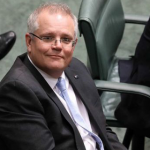Should Cyclists Have to Carry ID?

Proposed laws regarding cyclists have again made headlines.
The NSW government is now proposing a series of laws, including that cyclists be required to carry identification when using the roads.
While Clover Moore is vigilantly ripping out thousands of car parks to build bike lanes, she is at the same time cracking down on cyclists who break the law.
In a previous blog, we discussed whether cyclists should be made to wear number plates and pay registration, but what about carrying identification?
Cyclists to Carry ID
NSW Minister for Roads, Duncan Gay, is heavily in favour making it compulsory for bike riders to carry identification.
Gay arranged and participated in a “round table conference” discussing the idea, as well as other changes to legislation which affect cyclists. Also present were representatives from the NRMA, Motor Accident Authority, the Pedestrian Council and several cycling groups.
Gay said that he is convinced that some form of licence system is needed for cyclists. However, he has admitted that a separate licensing system for bicycles and cars would be unfeasible due to the enormous administrative cost. He has also acknowledged that “there are no precedents for mandatory bicycle registration or cyclist licensing in Australia.”
The idea of a separate bicycle licence has now been replaced by one which would require cyclists to carry a recognised form of identification, such as a driver licence.
It has been suggested that the rule should apply to cyclists over the age of either 16 or 18.
What would it achieve?
Cycling groups are infuriated by the proposal, saying that it is completely unnecessary and will not solve any issues.
But others argue that cyclists often get away with bad behaviour because, unlike drivers, they do not have ready identification on their mode of transport, and most do not even have third-party insurance.
This has led to concerns that cyclists are undeterred from breaking the law, and that even
those who are apprehended can give false details to police.
Failing to provide accurate details
If a cyclist breaks a road rule and is pulled over by police, they will usually be issued with an on-the-spot fine.
Section 19 of the Law Enforcement (Powers and Responsibilities) Act 2002 (‘the LEPRA’) give police the power to request a person’s name and address if they are reasonably suspected of an offence.
Providing a false name or address, or simply failing to give details to an officer, could lead to being arrested by police.
Other proposed changes
It has also been proposed that cyclists face heavier penalties for breaking the law.
The fines for cyclists are currently far lower than those faced by motorists, and Gay has proposed increasing the penalties to bring them more in line with diving offences.
In Melbourne, cyclists face fines of up to $152 for breaking road rules, which is more than double the standard fine of $69 for many cycling offences in NSW. Gay has proposed that a similar standard fine be adopted here.
Whether Gay’s latest proposals will be adopted into legislation and, if so, their effectiveness as a deterrent against cycling offences remains to be seen.
Going to court for a traffic offence?
If you are going to court for a traffic offence, call or email Sydney Criminal Lawyers anytime to arrange a free first consultation with an experienced, specialist traffic lawyer who will accurately advise you of your options, the best way forward, and fight for the optimal outcome in your specific situation.






